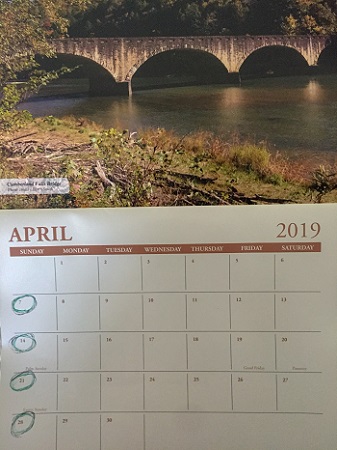Ox in the Ditch
 My friend Phyllis recently had an ox in the ditch. She and her husband dressed for church. Then they noticed a cow having trouble birthing its calf. Their cow needed help. Putting first things first, they helped their animals. They arrived at church late but with an attitude of gratitude for a healthy cow and calf.
My friend Phyllis recently had an ox in the ditch. She and her husband dressed for church. Then they noticed a cow having trouble birthing its calf. Their cow needed help. Putting first things first, they helped their animals. They arrived at church late but with an attitude of gratitude for a healthy cow and calf.
An ox in the ditch is not usually an ox.
Examples of an ox in the ditch include:
- Sick people who need a doctor
- Crime victims who need the police
- Buildings on fire that need firefighters
An ox in a ditch means an emergency.
The need demands:
- Immediate action
- Total attention
A great need replaces a good plan.
The Bible says Jesus healed a sick person on the Sabbath. Work was forbidden on days of worship. However, Jesus asked if people would not pull an ox from a ditch (or well) on the Sabbath. Another time Jesus said, “The Sabbath was made for man, not man for the Sabbath” (Mark 2:27 NIV).
God expects people to rest and worship one day a week. However, God also expects believers to put feet to their prayers – to meet needs when they arise.
“Then [Jesus] asked them, “If one of you has a child or an ox that falls into a well on the Sabbath day, will you not immediately pull it out?” (Luke 14:5 NIV).
Thanks to Phyllis Patton for the suggestion and Bart Woodrum for the photo.
Do you have an expression you want explained? If so, please comment below.
Subscribe to receive my weekly posts by email and receive a free copy of “Words of Hope for Days that Hurt.”
If you enjoyed this post, please share it with your friends.

 Pastors don’t need to convince believers to accept Jesus. That would be like preaching to the choir.
Pastors don’t need to convince believers to accept Jesus. That would be like preaching to the choir.  To spread a message, the messenger must go to those who:
To spread a message, the messenger must go to those who: Of course, people enjoy sharing the same beliefs. Choir members sing and praise God with other believers. True worship makes them
Of course, people enjoy sharing the same beliefs. Choir members sing and praise God with other believers. True worship makes them  Chickens come home to roost.
Chickens come home to roost. If someone pays us by check, we take it to the bank. The check promises money.
If someone pays us by check, we take it to the bank. The check promises money. My sister-in-law recently described a pie to die for. She told how it:
My sister-in-law recently described a pie to die for. She told how it: A month of Sundays means a long time.
A month of Sundays means a long time. When we want to check if something happened, we look in the books.
When we want to check if something happened, we look in the books. Anyone or anything pretty as a picture is very pretty.
Anyone or anything pretty as a picture is very pretty.  I have heard third time’s a charm all my life. Like many older expressions, I could not find its origin.
I have heard third time’s a charm all my life. Like many older expressions, I could not find its origin. Above all, I depend on guidance from my never-failing God.
Above all, I depend on guidance from my never-failing God.